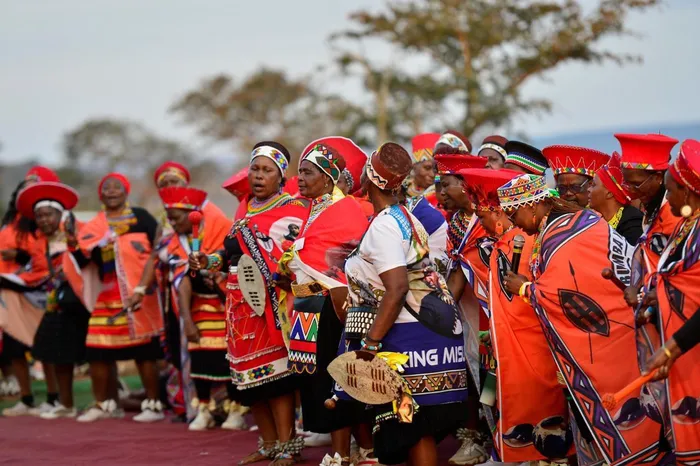
South African heritage lives in every beat. South Africa holds a rich tapestry of traditions dating far before colonialism and mainstream religion.
Image: Meta
EACH year during Heritage Month, we say “our past, our story”, as though every voice is heard, but some histories and heritages remain silenced.
South Africa holds a rich tapestry of traditions dating far before colonialism and mainstream religion. In the so-called “rainbow nation,” our post-apartheid society is multilingual, multicultural, and multi-ethnic. Heritage Month spotlights this diversity.
Yet the reality for millions of South Africans does not reflect a vibrant hub of cultures. Growing globalisation and digitisation have brought extensive Western influence. But much more is owed to the lack of cultural preservation in our post-apartheid society.
During apartheid, Black cultures, languages, and institutions were systematically broken down. We still grapple with these scars — socially, economically, and psychologically. The remnants linger, showing as inequality, exclusion, and the persistent undervaluing of Black identity and knowledge. Heritage Month must be more than celebrating diversity; it’s a call to reclaim and honour the cultural legacies apartheid tried to erase.
It is infuriating that while Black heritage is ignored and devalued, the languages, histories, and cultures of the apartheid regime — chiefly English and Afrikaans — dominate our institutions and public spaces. These narratives take centre stage, pushing aside rich, diverse indigenous languages and stories. This is not just a relic of the past; it’s a violent continuation of cultural erasure, seeping into how we teach, remember, and celebrate heritage today.
Heritage Month is not simply about spotlighting languages and cultures; it’s about highlighting cultural and historical sites, artefacts, traditions, and indigenous identities that have shaped our society.
Too many Black girls, queer daughters, rural youths, and others see heritage lessons in classrooms as partial - male heroes, colonial narratives, and sanitised traditions.
We’re told to embrace culture, but culture is never neutral. It’s where power, memory, and history collide. This Heritage Month, we must confront a hard truth: for many Black South Africans, heritage has been erased, distorted, or ignored — not just historically, but in our institutions, public spaces, and national narratives.
Heritage Day must go beyond symbols and actively restore the voices, stories, and traditions apartheid tried to bury — and that modern South Africa too often overlooks.
Culture is complex terrain where gender, power, silence, and memory intersect. Our celebrations must not conceal ongoing injustices.
From curricula reform to renaming public spaces, to equitable funding of marginalised cultural institutions — real transformation means confronting how Black heritage is still side-lined today.
Mere months ago, at the 2025 Decorex showcase, artists from across the land displayed original art installations — young people with curated pieces, grandmothers with tapestries, blankets, mats, vases, ironware, and more. Yet the event framed Black cultural expressions as “ethnic touches”, leaning heavily on a Western design aesthetic. This is a subtle exclusion: Black aesthetics mined for inspiration but not respected as foundational design languages.
This erasure is sharper in professional spaces, where personal expressions are stifled. Over three decades into democracy, Black people are still harassed and erased for simply wearing sangoma regalia, dipheta (traditional beads), isphandla (isiZulu wristbands), and more.
Natural hairstyles such as dreadlocks or afros, or cultural and religious practices, are deemed “unprofessional” or against dress codes. Despite constitutional protections, workplaces erase Black identity under uniformity’s guise, signalling that Black heritage is acceptable only if it fits narrow Euro-Western standards.
This ongoing marginalisation reveals how deep cultural erasure runs today, and why Heritage Month must push beyond symbolism to demand real respect and inclusion.
Heritage Month is more than dressing up or reflection; it’s a demand for change. If culture is to uplift rather than oppress, if heritage is to teach rather than erase, we must reshape what we teach, how we remember, and who we centre.
That means reforming curricula to include the full breadth of Black histories, languages, and philosophies; restoring and protecting cultural sites and artefacts; and funding and valuing Black artists, storytellers, and tradition custodians — not as tokens, but as leaders defining South African identity.
Crucially, post-apartheid Black South Africans, especially women, carry the weight of traditional and modern inequalities simultaneously. They are the keepers of indigenous knowledge, makers of heritage and culture, and often face the harshest erasure — even decades after apartheid.
Our Heritage Month reflections must confront the uncomfortable truth that sometimes we undervalue our own heritage by ignoring its erasures. Zakes Mda reminds us: “Culture is a living, breathing thing that connects us to who we are and where we come from.”
Heritage Month must shake us awake!
It is about restoring lost histories, confronting erasure head-on, and forging a future that upholds all of our fantastic cultures and heritages - not just the privileged few.
* Tswelopele Makoe is a gender and social justice activist and editor at Global South Media Network. She is a researcher, columnist, and an Andrew W Mellon scholar at the Desmond Tutu Centre for Religion and Social Justice, UWC.
** The views expressed here do not reflect those of the Sunday Independent, IOL, or Independent Media.